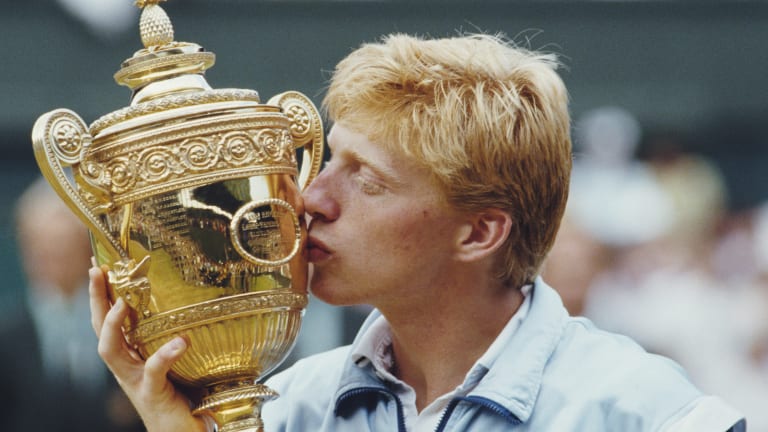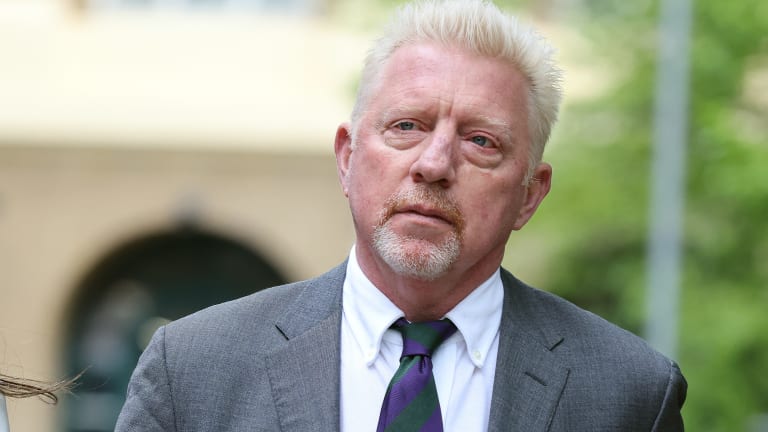Pop Culture
Review: New Boris Becker documentary “Boom! Boom!” is a story well and brutally told
By Apr 23, 2023Pop Culture
Strive to survive: Film shows the pressure ball kids face to earn an Australian Open spot
By Apr 11, 2025Pop Culture
Billie Jean King immortalized in bronze with star on Hollywood Walk of Fame
By Apr 07, 2025Pop Culture
Serena Williams teams with Caitlin Clark to talk value of women's sports with NFL owners
By Apr 07, 2025Pop Culture
Aryna Sabalenka meets David Beckham at Miami soccer game
By Apr 07, 2025Pop Culture
What tennis star Alizé Cornet learned from “Traitors” TV stint
By Apr 04, 2025Pop Culture
Lionel Messi watches Novak Djokovic advance to Miami Open final
By Mar 28, 2025Pop Culture
Millie Bobby Brown watches Aryna Sabalenka at Miami Open
By Mar 27, 2025Pop Culture
Alexander Zverev wants these ATP players on his basketball team
By Mar 25, 2025Pop Culture
Jessica Pegula gets 'mythic' in new ad for Call of Duty: Mobile
By Mar 22, 2025Pop Culture
Review: New Boris Becker documentary “Boom! Boom!” is a story well and brutally told
The movie could have been an hour shorter and the match highlights less extensive, but Apple TV's “Boom! Boom! The World vs. Boris Becker" offers a candid view on a complicated man.
Published Apr 23, 2023
Advertising
Advertising

Boris Becker, pictured here during a "life-changing romp through Wimbledon in 1985", is the subject of a new Apple TV documentary.
© Getty Images

Becker wore a Wimbledon-themed tie to his sentencing, after being convicted of four charges under the Insolvency Act related his 2017 bankruptcy filing.
© GC Images
Advertising

Boris Becker, who was released from jail and deported to Germany in December, attends the premiere of "Boom! Boom!" in Berlin.
© WireImage